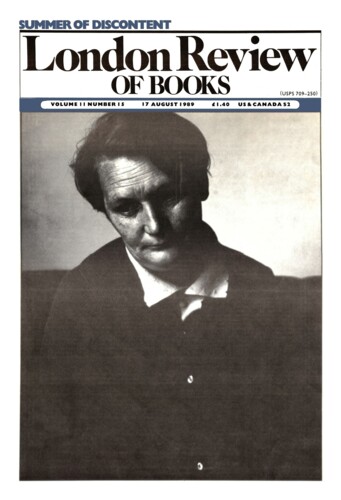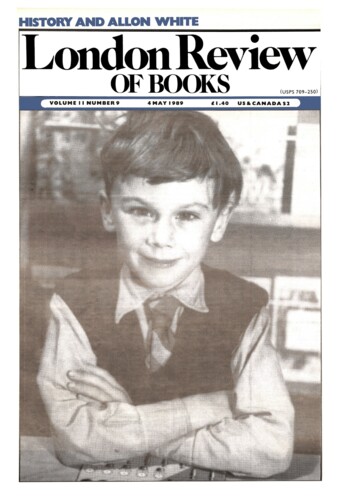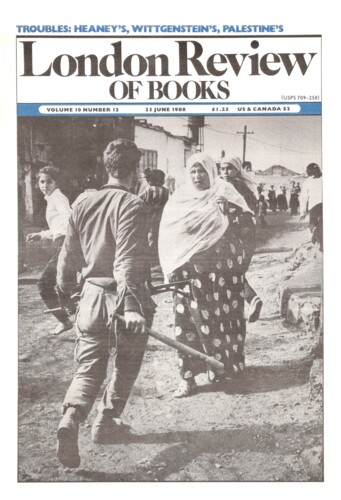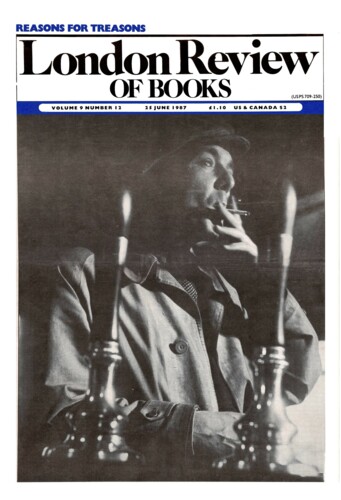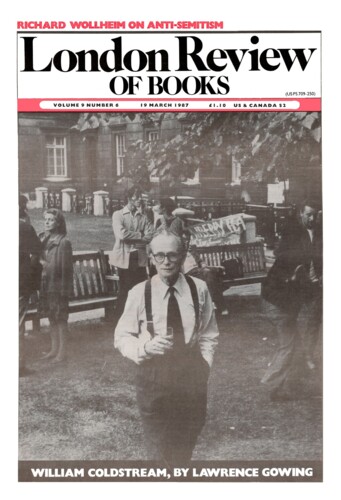Holland’s Empire
V.G. Kiernan, 17 August 1989
Jonathan Israel seeks, as few before him have done, to explain the phenomenal rise and then fall of the Dutch commercial hegemony by viewing it against a global background. His theme is its centrality ‘for over a century in the making of the Early Modern world’. His big book comes close to being a history of Europe, even of the whole world, or at least of commercial relations everywhere and the bearing of these on political relations. A copious supply of maps, tables, graphs, bolsters the epic story that he has to narrate. He tells it in sober language, but it is dramatic enough by itself to be in little need of adornment. The statistical evidence drawn upon is remarkable in its extent, and often requires expert judgment for its interpretation. His conclusions differ at various crucial points from generally accepted views. Some of these derive from Braudel, ‘the French grand maître’ as Israel calls him, whose ideas he takes as ‘landmarks to help plot our course’. Not seldom, nevertheless, he finds the master at fault; most frequently he convicts him of underrating the effectiveness of governmental measures against foreign trade.
